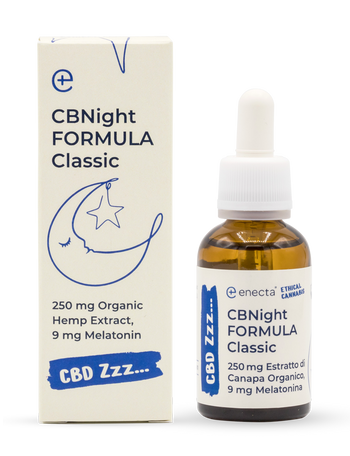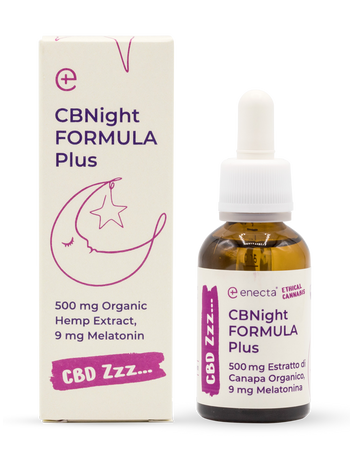Huntingdon’s disease is a genetic condition that affects the brain. At present, there is no cure for this progressive and fatal disease. However, recent evidence reveals that CBD may slow the progression of Huntingdon’s, improving the quality of life in people living with the disorder.
In this piece, we’ll take a look at the available resources and information surrounding CBD and Huntington’s disease. We’ll also discuss how you can use the neuroprotective effects of CBD to your advantage.
What is Huntington’s Disease?
Characterized by uncontrollable muscle spams, gradual reduction in cognitive function, and an inability to control emotions, Huntington’s disease is a progressive neurological disorder. Huntington’s is severe, lifelong, and caused by genetic mutations within the brain.
Huntington’s disease offers a range of challenges to the lives of people diagnosed with the condition. With no known cure, several options help to slow down the progression of the disease, improving overall quality of life.
One of these options is CBD (Cannabidiol), the most prevalent and well-researched non-psychoactive cannabinoid found in the cannabis plant.
How Could CBD Help With the Effects of Huntingdon’s Disease?
During the progression of Huntingdon’s disease, dysfunctional proteins build around nerve cells, impeding their ability to function efficiently.
Over a 10-20 year duration, this leads to widespread inflammation and neuron-death across several areas of the brain. This leads to a gradual decline in quality of life, as neurological symptoms become more severe over time.
CBD could provide some effective benefits to managing this condition due to the potent neuroprotective and anti-inflammatory effects that it produces.
There is no concrete scientific evidence from trials involving CBD and Huntingdon’s disease at present. However, there is a wealth of animal trials and case studies that prove this hypothesis.
Additionally, CBD’s effects are well-documented, and various trials support the idea that CBD could help to slow the progression of Huntingdon’s disease, reducing some of the most uncomfortable side-effects.
What Causes Huntington’s Disease?
Huntington’s disease is a genetic disorder that affects roughly 5 in every 100,000 Europeans. The condition is more prevalent across Europe, with very few cases being diagnosed in Asian and African populations.
The condition develops from a mutation in a specific gene called HTT. This gene is known to encode the ‘huntingtin’ protein, which is thought to play a vital role in the way that nerve cells function.
People diagnosed with Hungtington’s produce huntingtin proteins that are abnormally long. These proteins break down into smaller parts due to the instability caused by their length, entangling, and accumulating around neurons. As a result, neurons lose the ability to function efficiently, and eventually die.
As the disease progresses, people gradually notice speech difficulty, confusion, and involuntary movements. This condition is somewhat similar to Alzheimer’s. However, both conditions affect different proteins inside the brain.
Over the last twenty years, there has been little progression in the development of effective treatments for Huntingdon’s disease. However, the past decade has seen research into cannabis as a viable form of treatment progress.
CBD, in particular, has shown promise in several human studies for its ability to regulate the nervous system. Also, due to the well-documented anti-inflammatory effects that CBD offers, it could help to slow-down and ease disease progression in those living with Huntington’s disease.
CBD and the Brain
During the late 1980s, the endocannabinoid receptors were discovered. These tiny receptors are located on the end of cells. There are two main types of endocannabinoid receptors, CB1 and CB2.
CB1 receptors are mostly found on the spinal cord and brain, whereas CB2 receptors are highly concentrated on the immune and lymph cells. Productive brain activity relies heavily on electrical communication between brain nerve cells. CB1 receptors play a crucial role in this process, delivering feedback between nerves and confirming that messages are successfully sent.
Thus, the endocannabinoid system has proven to be a critical regulator of our neurological processes, slowing it down and speeding it up whenever necessary.
How Could CBD Effect Huntingdon’s Disease?
CBD works to increase the overall efficiency of the endocannabinoid system. This is important when it comes to treating Huntington’s disease, as mice with the condition have low CB1 and high CB2 activity.
It’s thought that an increase in CB2 activity is the body’s attempt to control the condition and stop nerve cells from dying. Therefore, CBD could benefit patients by offering support to the endocannabinoid system, making it able to manage the adverse side effects of Huntingdon’s disease.
To purchase premium CBD products, click here, or, for more information regarding CBD and Huntington’s disease, click here to contact a member of our team today.








































